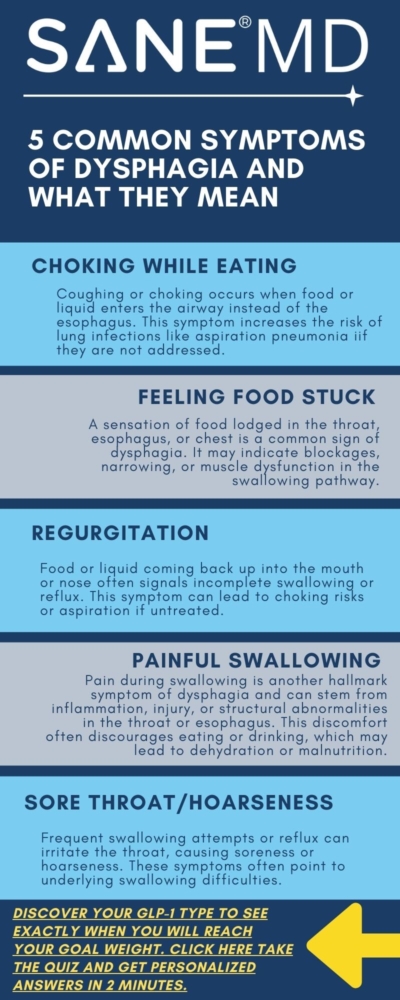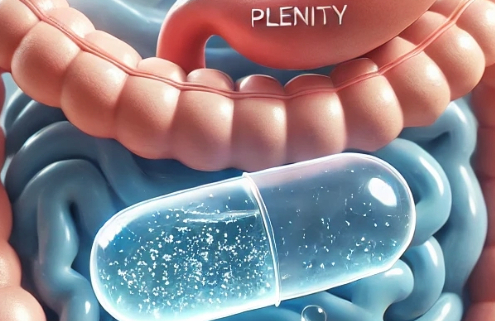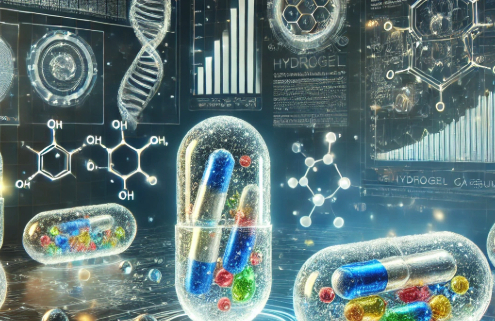Swallowing Difficulty: Symptoms, Causes & Proper Swallowing Technique
Have you ever considered your swallowing technique? If you answered “no,” you’re not alone. Most people take their swallowing function for granted because it’s an automatic process. However, some individuals experience difficulty swallowing, which can lead to various problems.
Join us as we delve into the symptoms, causes, and solutions of swallowing problems.
- New Report Says Your Brain Could Be the Key to Reducing Phlegm Over 50
- Doctor's "Leave The Throat Phlegm Behind" Tutorial Goes Viral With People Over 50
- Can You Relieve Throat Phlegm and Coughing In 60 Seconds A Day? This Doctor Says Yes
- How To Banish Phlegm When 50+ (Do This Every Day)
Key Takeaways
- Dysphagia, or difficulty swallowing, can be caused by various medical conditions, including stroke, Parkinson’s disease, and head and neck cancer.
- Symptoms of dysphagia may include pain while swallowing, choking on food or liquid, bringing food back into the mouth or nose (regurgitation), and feeling like food is getting stuck in the throat.
- Treatment for dysphagia may include exercises to strengthen the muscles used in swallowing, changes to the texture or consistency of food and liquids, and, in some cases, surgery or medication.
Dysphagia (Difficulty Swallowing)
Swallowing difficulty, medically known as dysphagia, is when swallowing function is impaired, causing the feeling of food or liquid becoming stuck in your throat or esophagus before reaching the stomach.
Occasional difficulty swallowing certain foods or liquids is normal and not necessarily dysphagia. But if your swallowing problems are ongoing, it can indicate a more serious underlying condition. If left untreated, it can result in food or liquid entering your airway (known as aspiration), which can lead to a lung infection or pneumonia.
Dysphagia Types
Healthcare providers separate dysphagia into three types based on which part of the swallowing technique is impaired.
- Oral dysphagia occurs when there is difficulty moving food from the mouth to the throat. This can be due to problems with the muscles and nerves in your mouth, making it difficult to chew and swallow food properly.
- Oropharyngeal dysphagia refers to the difficulty in swallowing that originates in the throat. After chewing and mixing the food with saliva, the tongue pushes the food to the back of the throat, where the voice box (larynx) closes to prevent food or liquid from entering the airway (trachea) and instead directs it to the esophagus. This type of dysphagia is also known as transfer dysphagia because it involves difficulty transferring food from the mouth to the throat.
- Esophageal dysphagia occurs when the wave-like motion (peristalsis) that moves food or liquid down into your stomach is disrupted, leading to difficulty swallowing (dysphagia).
Dysphagia Symptoms
Symptoms of dysphagia include:
- Frequent coughing or choking when eating or drinking
- The feeling that food is stuck in the throat, esophagus, or chest (behind the breastbone).
- Drooling
- Food or liquid coming back up into the mouth or nose (regurgitation)
- Frequent heartburn
- Painful swallowing
- Lack of the ability to swallow
- Chronic acid reflux
- Persistent sore throat
- Vomiting
- Shortness of breath
Causes of Swallowing disorders
Many factors can cause swallowing difficulties.
Esophageal Motility
Esophageal motility refers to the process of moving food through the esophagus. Typically, the muscles in the esophagus work together in a coordinated manner to propel swallowed food toward the stomach in one direction. Sphincters, which are rings of muscles located at the top and bottom of the esophagus, allow food to enter and exit the esophagus.
Issues with the muscles or nerves can prevent food from passing into the stomach if they stop working together or if any of them fail to work. For instance, previous surgery on the esophagus or having a breathing tube can often lead to difficulties swallowing. In many cases, however, the exact cause is unknown.
Here are some common esophageal motility disorders, along with their brief descriptions:
- Achalasia: It is a condition characterized by loss of function in the ring of muscle between the lower end of the esophagus and stomach, called the lower esophageal sphincter.
- Distal Esophageal Spasm: It is a condition where there are disordered muscle contractions in the lower part of the esophagus, which can cause food to come back up into the throat.
- Jackhammer Esophagus: It is a condition where there are unusually strong contractions of the muscles in the esophagus that can cause severe chest pain during swallowing.
Explanatory Text
Gastroesophageal reflux Disease GERD, tweaked lower esophageal sphincter, esophagus, reflux, diaphragm, stomach, stomach acid contents.
End Explanatory Text
Structural Abdormailites of the Esophagus or Throat
Swallowing difficulties can be caused by blockages or narrowness in the throat or esophagus. Some common causes include:
- Cancer: Tumors in the head and neck can obstruct food and drink. The most common type of cancer that causes dysphagia is esophageal cancer.
- Eosinophilic esophagitis: A condition where too many white blood cells (eosinophils) accumulate in the esophagus, causing stiffness.
- Esophageal diverticulum: A weakened pouch in the esophagus lining where food bits can accumulate, creating a sensation of something being stuck in the throat. The most common type is called Zenker’s diverticulum.
- Esophageal webs and (Schatzki) rings: Atypical tissue inside the esophagus that narrows the tube and can cause food to get stuck.
- Gastroesophageal reflux disease (GERD or acid reflux disease): When stomach acid repeatedly flows backward into the esophagus, it can cause scar tissue. This tissue can cause tightening and irritation called esophageal strictures.
Neurological Disorders
Conditions and injuries that affect your brain and nervous system can also cause dysphagia. These neurological conditions include:
- Amyotrophic lateral sclerosis (ALS or Lou Gehrig’s Disease): ALS is a rare neurodegenerative disease that gradually impairs muscle control, affecting speech, swallowing, and breathing. There is no known cure for ALS, and it is ultimately fatal.
- Brain tumors: A brain tumor is an abnormal mass or growth of cells in the brain that can interfere with the nerve signaling necessary for correct muscle movement, and it doesn’t matter whether the tumor is cancerous or noncancerous (benign).
- Cerebral palsy. According to the Centers for Disease Control and Prevention, “Cerebral palsy (CP) is a group of disorders that affect a person’s ability to move and maintain balance and posture…CP is caused by abnormal brain development or damage to the developing brain, affecting a person’s ability to control their muscles.” (1)
- Dementia: Dementia is a broad term describing a decline in mental ability affecting daily activities. Alzheimer’s is the most common form. Because the brain also involves swallowing function, dementia can lead to a swallowing disorder.
- Multiple sclerosis (MS): Multiple sclerosis is an autoimmune disease affecting the central nervous system. When someone has multiple sclerosis, their immune system mistakenly attacks the myelin, a protective layer around nerve fibers. As a result, the inflammation and lesions caused by the immune system make it difficult for the brain to send signals to the rest of the body. This can negatively impact a person’s ability to perform essential functions like swallowing.
- Parkinson’s disease: Parkinson’s disease is a condition that affects the nervous system and causes a gradual loss of control over movements and bodily functions. It is called a movement disorder because it involves motor movement, including tremors, slow movements, trouble walking, trouble speaking, and swallowing problems. Parkinson’s is a progressive neurodegenerative disorder, which means it gets worse over time.
- Stroke. An ischemic stroke occurs when an artery or vein is blocked, interrupting or severely reducing blood flow to a part of the brain, which causes brain cells to die in minutes due to lack of oxygen and nutrients.
- Traumatic brain injury (TBI): A traumatic brain injury is caused by forceful injury or a violent blow to the head. Vehicle accidents or sports injuries often cause TBIs.
Dysphagia Treatments
The appropriate treatment for your swallowing issue depends on its underlying cause. Eating and drinking safely is crucial since incorrect swallowing may result in choking or inhaling food or liquid into your airway. This can lead to pneumonia.
You can manage swallowing difficulties at home in the following ways:
Lifestyle Changes
- Diet. Your healthcare provider may recommend alterations to your diet, or you may be advised to consume a special liquid diet to keep yourself healthy.
- Receive swallowing therapy. You will work with a speech-language pathologist to retrain muscles involved in swallowing to reduce the risk of choking and aspiration pneumonia.
- Use thickeners for liquids. Your healthcare provider may suggest using substances to thicken water and other liquids so you don’t inhale them into your lungs.
Medicine
The medications prescribed for treatment depend on the underlying cause and may include the following:
- Specific muscle relaxants like nitrates, which are commonly used to treat angina pectoris, and dicyclomine, which relaxes the muscles in the esophagus.
- Injection of botulinum toxin to relax the muscles in the throat and esophagus.
- Medications to alleviate heartburn caused by gastroesophageal reflux disease (GERD)
- Medications to manage an anxiety disorder, if present
Medical Procedures/Surgeries
There are several procedures and surgeries that can be used to treat swallowing problems.
- Upper endoscopy. This procedure may be performed to dilate a narrowed area of the esophagus. In some cases, this may need to be repeated more than once.
- Radiation therapy or surgery. Radiation therapy or surgery may be necessary if a cancerous growth is causing the swallowing problem. Achalasia or esophagus spasms may also respond to surgery or botulinum toxin injections.
- Feeding tube. If your symptoms are severe and you cannot eat and drink enough, or if you have problems with choking or pneumonia, you may require a feeding tube. This tube is inserted directly into the stomach through the abdominal wall (G-tube).
Swallowing Exercises
A speech and language therapist can demonstrate and help you practice several swallowing exercises, including:
Tongue-Strengthening Exercises
Tongue-strengthening exercises can be beneficial in improving your swallowing technique. With regular practice, these exercises can help you enhance your tongue strength and mobility, which can help you swallow more efficiently. These exercises can be beneficial when used in conjunction with other types of swallowing exercises.
If you are experiencing difficulty with swallowing, a speech-language pathologist (SLP) can recommend specific swallowing exercises tailored to your particular condition. The type of exercises recommended will depend on the nature and severity of your swallowing problem.
Specific tongue-strengthening exercises include:
Tongue Push Ups
To strengthen your swallowing muscles, try this exercise:
Push up with your tongue as far as possible while pushing down with a tongue depressor. Hold for 5 seconds and repeat the exercise 5 times a day. This exercise is a great addition to other swallowing exercises and will help improve your swallowing technique.
Tongue Stretching
Stretch your tongue upwards and hold for 10 seconds. Repeat ten times.
By performing tongue stretches you can increase the length of your tongue and improve its mobility.
Tongue Relaxation
Tongue tension can accumulate due to everyday stress and constant pressure on the jaw and tongue. This tension can adversely affect speech, cause oral health issues, and interfere with swallowing. To counteract this, tongue relaxation exercises can help alleviate the tension.
Here’s one of the most popular tongue relaxation exercises:
For 20 seconds, hold your tongue entirely still with the tip behind your bottom teeth. Then, release and rest your tongue for a moment before repeating the exercise for two more rounds.
Tongue relaxation exercises are deceptively easy but help improve your swallowing technique.
Larynx Closure Exercises
Larynx-closure exercises can improve your swallowing technique by strengthening the muscles in your larynx, also known as your voice box. Your speech-language pathologist (SLP) can guide you through specific exercises and recommend how often you should practice them. Two of the most popular larynx closure exercises are below.
- Supraglottic swallow: Take a deep breath, hold it, and then cough immediately.
- Super-supraglottic swallow: Inhale, hold your breath tightly, bear down, swallow, and then exhale.
These exercises should be done without food or liquid. However, if you have uncontrolled blood pressure, you should avoid bearing down as it can increase blood pressure.
Lip Closure Exercises
Lip-closure exercises can help improve swallowing technique in a person who experiences dysphagia (difficulty swallowing). These exercises can increase strength and mobility in the lips, leading to enhanced swallowing ability. They are often used in conjunction with other swallowing exercises and are tailored to the specific nature of each individual’s swallowing problem.
Lip closure exercises may include:
- Tightly sealing your lips around a tongue depressor and holding for 5 seconds while another person tries to pull it out of your mouth. Repeat five times. Remember to keep the depressor with your lips, not with your teeth or gums.
- Filling your cheeks with air and moving the air from one cheek to the other five times without any air escaping from the lips or nose. Relax and repeat five times.
Your Speech-Language Pathologist (SLP) can provide specific instructions on how to do each exercise and how often to practice them.
When to See a Health Care Provider
Schedule an appointment with your healthcare provider as soon as you notice that your dysphagia isn’t a one-time thing. Recurring dysphagia likely has a cause that your healthcare provider can diagnose and treat.
You must also call 911 or go to the emergency room if you experience any of the following symptoms:
- Inability to swallow
- Breathing problems
- The sensation of something stuck in your throat
- Abrupt muscle weakness or paralysis
Summary
Dysphagia, or difficulty swallowing, can be caused by various conditions and treatments, and may be temporary or lifelong.
People with dysphagia need to eat food that has been carefully prepared to avoid presenting choking hazards. These can be fresh foods made into soft or pureed textures and cut into small bites or special foods like thickened liquids or texture-modified foods.
In addition to modifying their diet, people with dysphagia can also benefit from swallowing exercises, improving muscle function and coordination. These exercises may involve controlled swallowing of specific foods or liquids and other techniques to strengthen the muscles involved in swallowing.
Some people with dysphagia cannot take food orally and must use a feeding tube. The good news is that many cases of dysphagia are temporary, and a wide variety of treatments are available to help manage the condition and improve quality of life.
Frequently Asked Questions
Does difficulty swallowing ever go away?
Treatment for dysphagia typically depends on its cause and type. After evaluating your swallowing ability and examining your esophagus, your healthcare provider can usually diagnose the type of dysphagia you have. Although a cure isn’t always possible, many cases of dysphagia can be improved through treatment.
What are the three signs of dysphagia?
The three primary signs of dysphagia are the sensation of food stuck in the throat, choking or coughing when swallowing, and regurgitating ingested food or liquids.
What is a swallow test?
During a swallowing study, X-rays in real-time (fluoroscopy) are used to monitor your throat and esophagus as you swallow. To help visualize the process, a substance called barium is mixed with liquid and food you will eat. The test helps show how your throat and esophagus function while swallowing.
1- https://www.cdc.gov/ncbddd/cp/facts.html



















